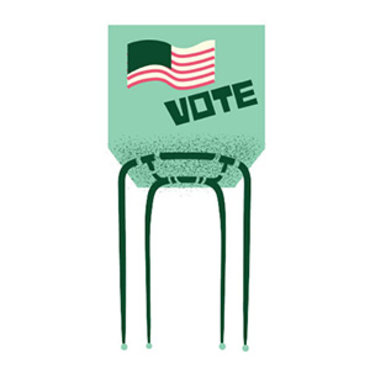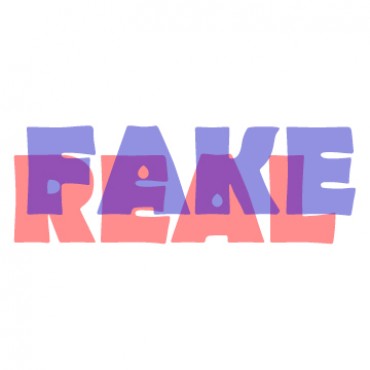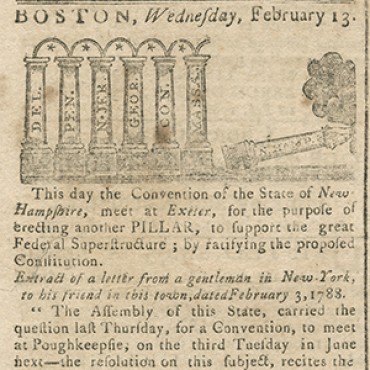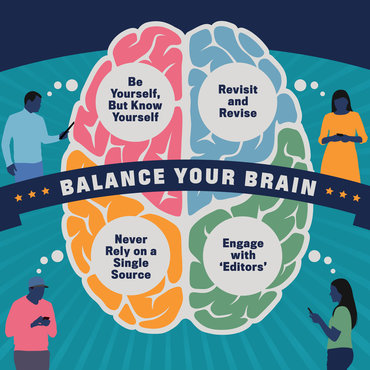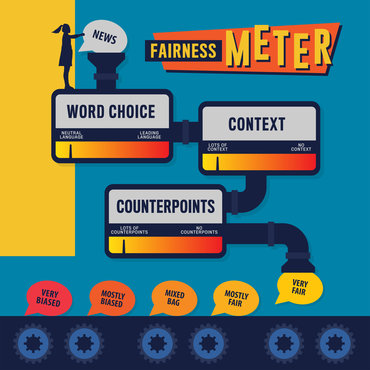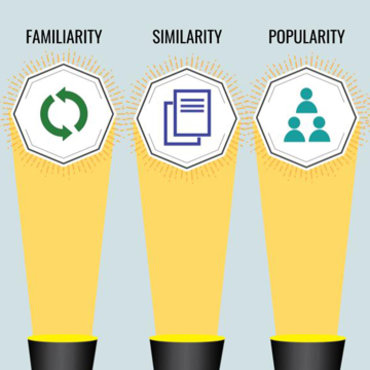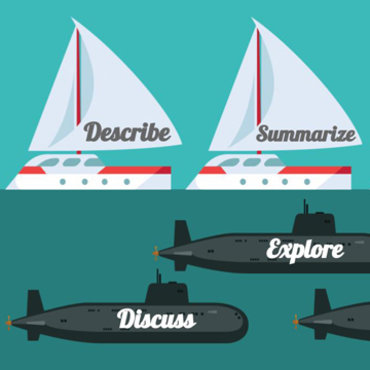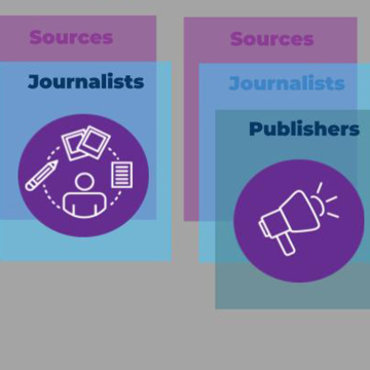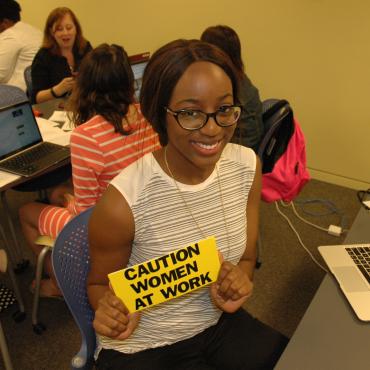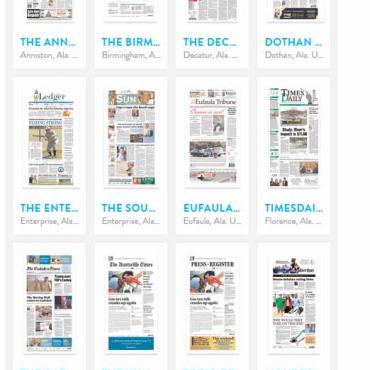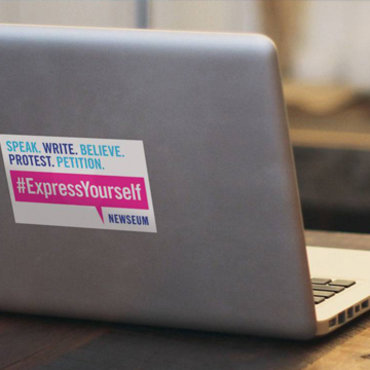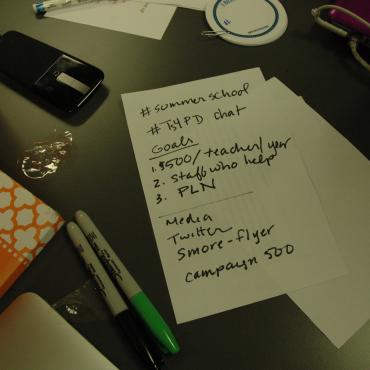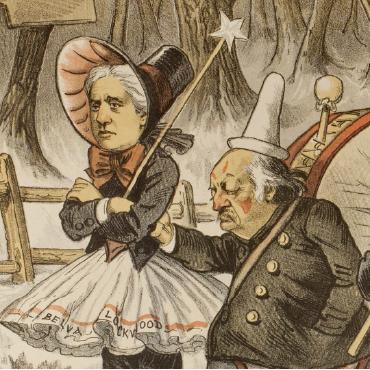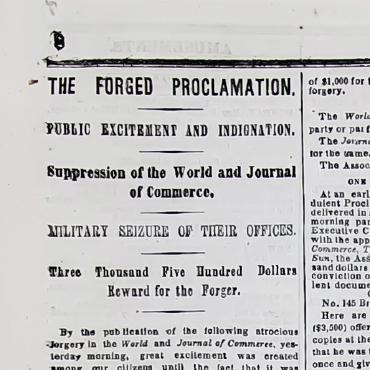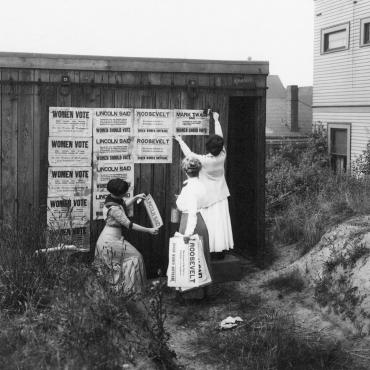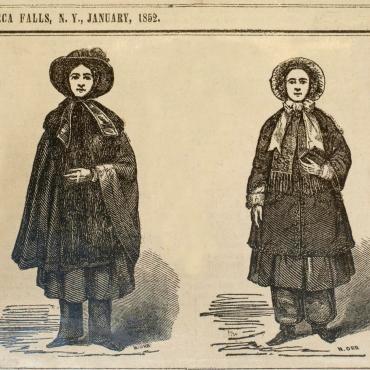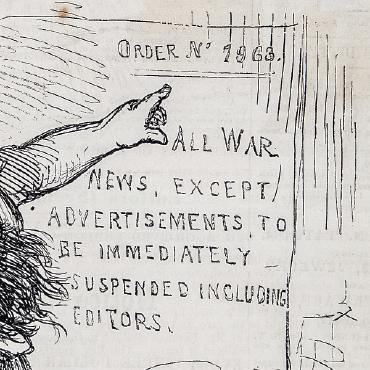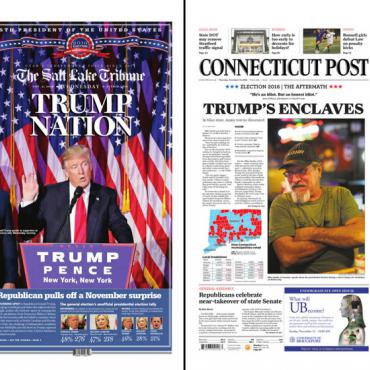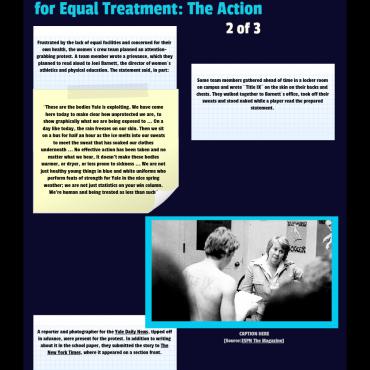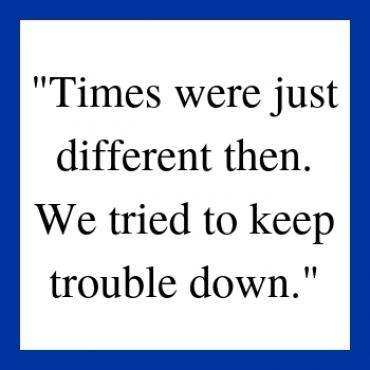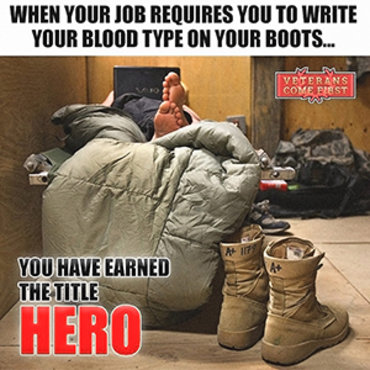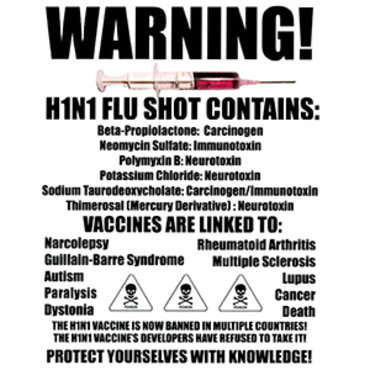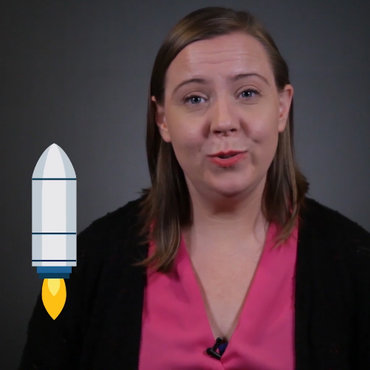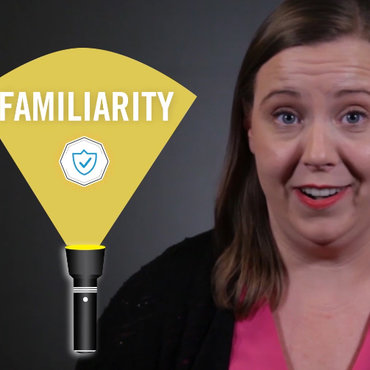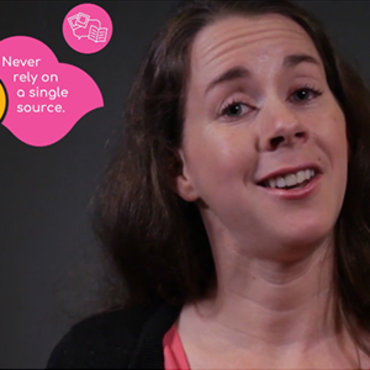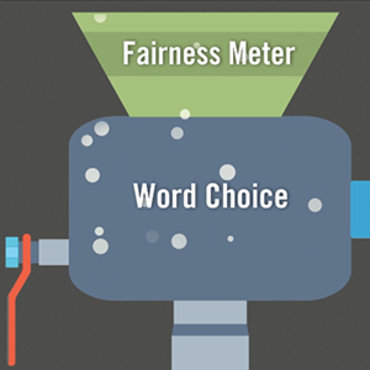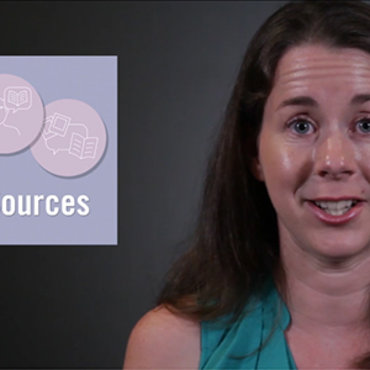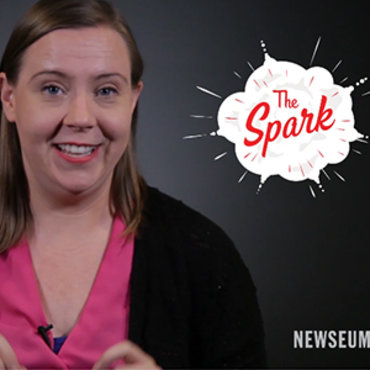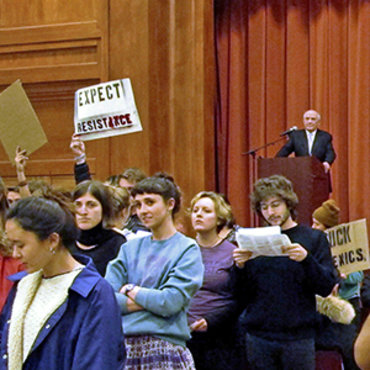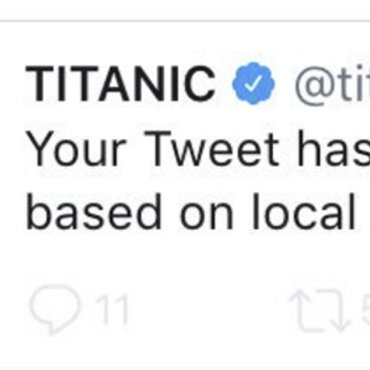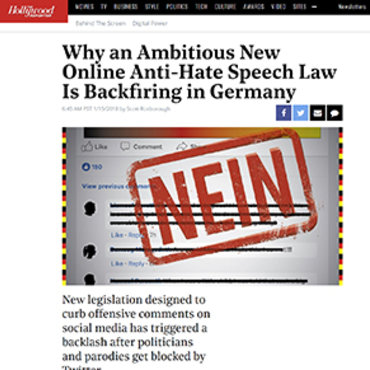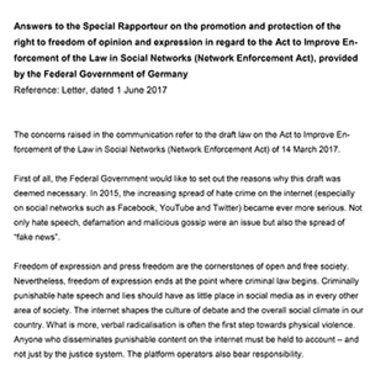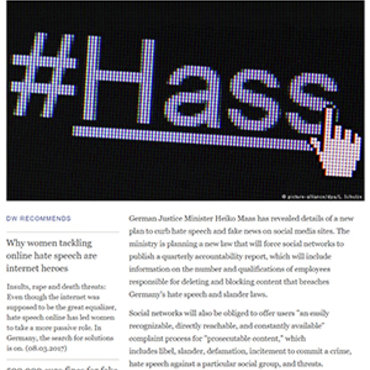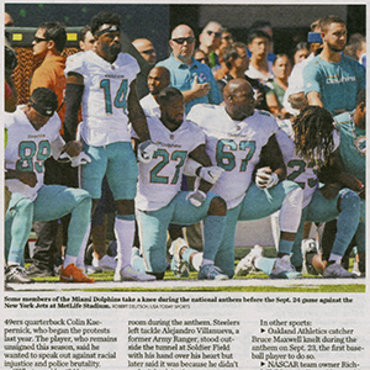Disinformation Nation: Checking Your Emotions
Students will hone their ability to deflect propaganda by seeking out messages that evoke a strong emotional reaction and practicing the next steps to put these strong reactions in context.
Get even more great free content!
This content contains copyrighted material that requires a free NewseumED account.
Registration is fast, easy, and comes with 100% free access to our vast collection of videos, artifacts, interactive content, and more.
NewseumED is provided as a free educational resource and contains copyrighted material. Registration is required for full access. Signing up is simple and free.
With a free NewseumED account, you can:
- Watch timely and informative videos
- Access expertly crafted lesson plans
- Download an array of classroom resources
- and much more!
- Current Events
- 7-12
- From Emotion to Action worksheet (in lesson plan download), one per student
- Internet access to view the Disinformation Nation website and search for examples
- Quickly define propaganda (messages that serve a particular agenda and are designed to manipulate their targeted audiences) and gauge what students know about the topic.
- Give students 10 minutes to explore the “How to Combat It” section of Disinformation Nation. To access this page, click on “Propaganda” in the main menu at the top of the homepage, then click on the “How to Combat It” drop-down option. (You may also want to allow time for students to explore the “How It Works” section if you have not already completed the Disinformation Nation lesson plan titled “Is It Propaganda?”)
- Explain that just as in sports, the best defense against propaganda can be a good offense: having a plan for how to respond to manipulative messages. They are going to practice using the first strategy to combat propaganda by noticing their emotional reactions and responding in a productive way.
- Give each student a copy of the “From Emotion to Action” worksheet. Explain that they will be looking for an example of online content that makes them feel a strong emotional reaction, either positive or negative. The example they choose does not have to fit the full definition of propaganda; it simply needs to make them feel a strong reaction. For the sake of this exercise, they should focus on finding an ad, Tweet, Facebook post, meme, or other short message, with or without imagery. They may choose messages related to current events, but should steer clear of news stories. Even though news stories can make you feel outraged or excited, this exercise will not look at news and reporting techniques.
- Give students time outside of class to search for their examples. If students need a starting point for their search, they can try the gallery at Mind Over Media. Static ads and screen grabs of videos can be printed and attached to the worksheets. Alternatively, you could copy the worksheet content into a digital document for students to access and/or create online Pinterest pages or slide decks for them to add their examples. They should then answer the questions, which will walk them through steps to respond to these reactions.
- Have students bring their examples to class and create a display (digitally or on the board/wall). Allow students to share their process and answers and sort the examples into those that trigger positive versus negative emotional responses.
- Use the discussion questions below to prompt further conversation.
- What techniques did the makers of these messages use to get your attention and trigger an emotional reaction? Refer back to the SEED techniques (simplification, exaggeration, exploitation, division) that are described on the Weed Out Propaganda poster or in the “How It Works” section of Disinformation Nation.
- Which of the “Responding to Your Reaction” questions do you think is the most important to answer, and why? Which did you find the most difficult to answer? Why?
- In real life, how likely are you to recognize when you have a strong emotional reaction to a message? How could you make yourself more likely to recognize these moments? What tips would you give others to help them recognize these reactions?
- In real life, what do you currently do when you have a strong emotional reaction to some sort of content? What would you like to keep and change about your current habits?
- What advice would you give to someone who wants to avoid being manipulated by propaganda?
-
Common Core State Standards: CCSS.ELA-LITERACY.CCRA.R.1
Read closely to determine what the text says explicitly and to make logical inferences from it; cite specific textual evidence when writing or speaking to support conclusions drawn from the text. -
Common Core State Standards: CCSS.ELA-LITERACY.CCRA.R.8
Delineate and evaluate the argument and specific claims in a text, including the validity of the reasoning as well as the relevance and sufficiency of the evidence.
-
ISTE: 3b. Knowledge Constructor
Students evaluate the accuracy, perspective, credibility and relevance of information, media, data or other resources.
